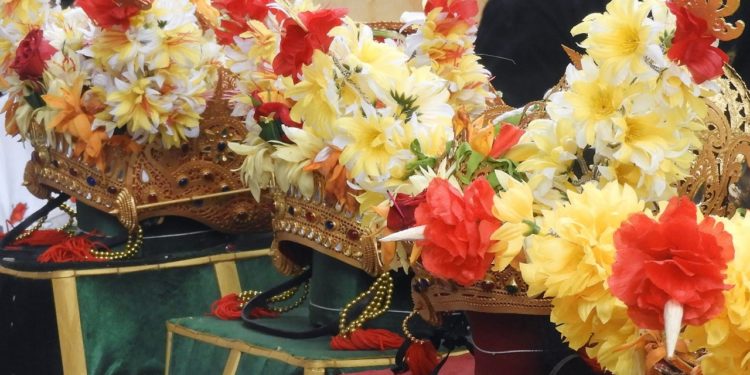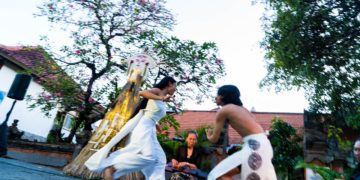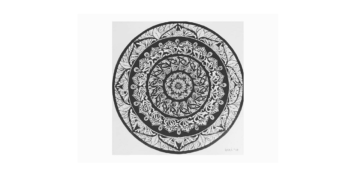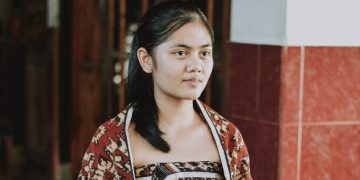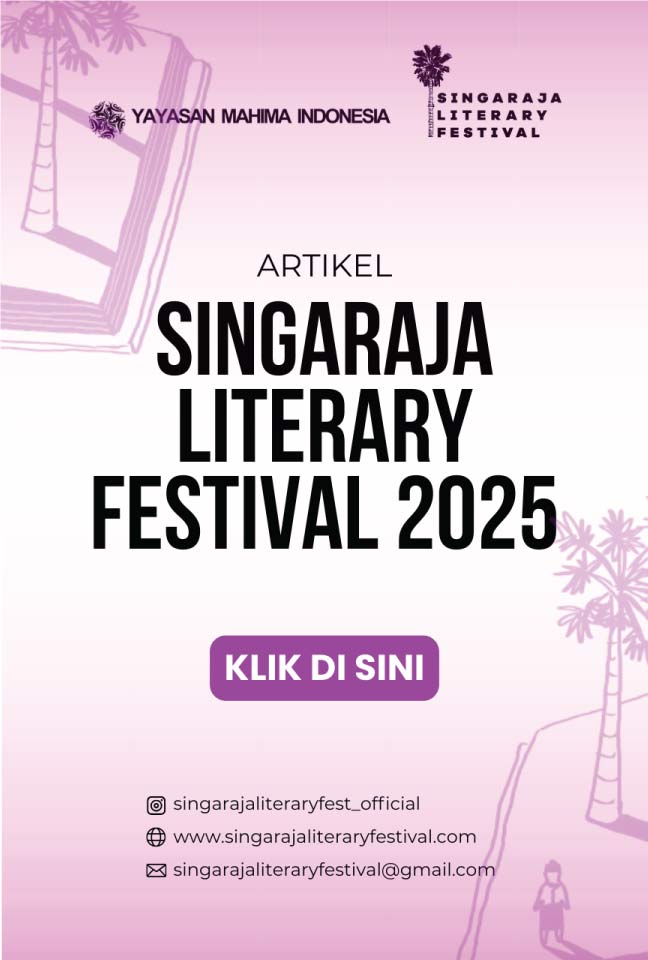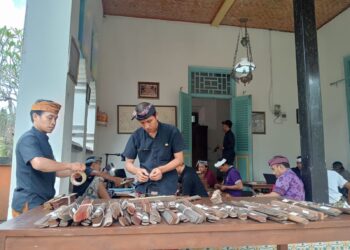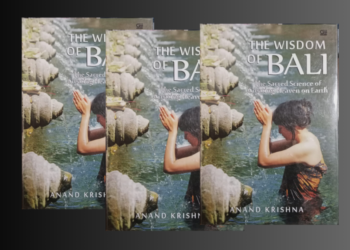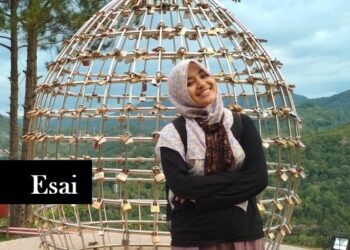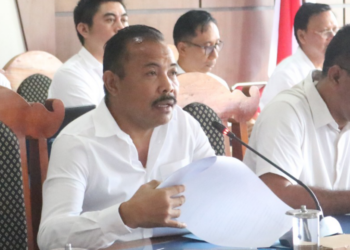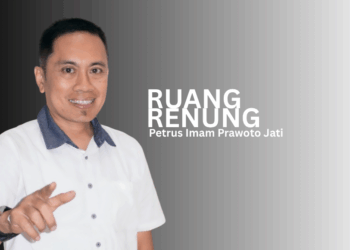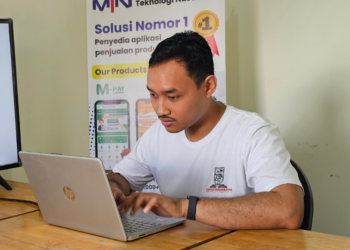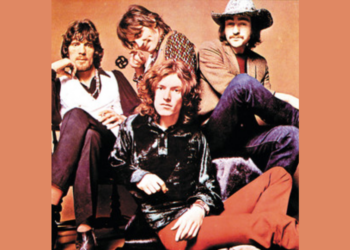With thanks to Rita, Mertin, Ema, Mochi, Martinez, Suci, and Nia who gave me an insight perspective of their day tot day life in Indonesia
Introduction
Following my journey through Indonesia, I am writing a triptych of stories in which I describe my experiences from a Western (female) perspective. This story is about the beautiful and strong women I had the pleasure of meeting during my travels through Java, Bali and Flores. Don’t get me wrong; I also spoke with kind men, but as a Western woman, it was particularly interesting for me to meet women from the other side of the world and talk to them about what it is like to be a woman in a still often un-emancipated (traditional) community.
The stories, but especially the empathy for the situations they deal with daily, led to reflections worth sharing and which provide an insight view into the complexities women in contemporary Indonesia struggle with.
Before starting this article, I wondered what it means to be a strong, inspiring woman. I have been a single mother for quite some time. Over the years, I received encouraging feedback from my surroundings on how strong I was to juggle work, parenting, and housekeeping on my own. I never thought about it myself.
Firstly, there was no time to think about the work i had to put up with, and secondly i was not given any choice. Giving up was not an option; after all, I had (young) children to care for. For years I faced my own struggles, and it was only in Indonesia that I realized I am stronger than I think i am.
My preliminary definition of a strong, inspiring woman would be one who, despite all the setbacks she faces, looks ahead and, through her hope, strength, and perseverance, serves as an inspiration to other women. I also want to emphasize the relevance of sharing stories and recognizing strong women; it can never be too much.
Over the years, I have gathered a group of women around me to lean on. Sharing experiences among each other creates a sense of recognition and acknowledgment, but more so, the realization that you are not alone.
The women I met all contribute to the defined concept of a strong and inspiring woman, each in their own way. To me, they are local heroes who, through their worldview and perseverance, deserve recognition. For privacy reasons, I will describe the situations as generically as possible.
Religion
Religion plays an important role on the three islands I visited. Java is 90% Islamic, Bali is more than 60% Hindu, and Flores is predominantly Catholic. In Java, Islam gained significant ground after the 1950s. You can find a mosque on every street corner, and almost all women wear headscarves. In some parts of Java, like Pasoeruan, you also see niqabs in the streets. The Islamic faith shapes the culture, and customs are intertwined with it. Islam might be experienced as more liberal than in Afghanistan or Iraq, but its practice still creates situations where women encounter limits to their specific needs. I spoke with a 23-year-old woman in Semarang. She works as a pharmacy assistant and lives at home with her parents. Like any young woman, she wants to spread her wings, dream of traveling, visiting other countries, and discovering her life path.
Unfortunately, this is not possible in her current structure. While her brothers have the freedom to go where they want, she can only dream of it. A year ago, against all restrictions, she secretly took a flight to Bali and spent a few days there. When she returned, there was an uproar, but she told me that this action was the best thing that ever happened to her. She had never felt so independent and strong.
Unfortunately, she said with tears in her eyes, it is not likely she can do this again. She hung on my every word when I talked about how young people in Europe, both girls and boys, have the freedom to go and do as they please. It was painful to see that she could not be who she deeply wanted to be, and I could only hope she would make more secret trips in the future and in doing this choose for herself.
Marriage
Marriage is sacred on all three islands. For example, at a hotel in Bandung, I received a form asking if there was a legitimate marriage in case I wanted to book a room with a partner. I was with my children, so this question did not apply to my situation. From a Western perspective, such a question is unusual and evokes resistance; it is a question that goes against privacy and the right to self-determination.
I understood from it that in Java, you must be married to share a hotel room. If you don’t want this or if circumstances don’t allow it, it is a challenge to fully participate in social life especially being a woman. For instance, in Java it is not possible for a single woman to buy a house, even if she is financially independent.
There are exceptions though; I became friends with a the lady who did this, but it is important to know the ways (have knowledge, connections, and money) to make this happen.
In Bali, I met a young woman originally from Sumatra. After her father’s death, she moved to the island alone to create space for herself and develop personally. In Sumatra, her mother repeatedly urged her to find a partner and marry.
Although the young woman is open to a relationship, she is very aware of the importance of finding the right partner. Her motto is that if she doesn’t find him, she is better off staying single and working on her own future. In Sumatra, she found herself constantly defending this viewpoint. People called her critical and didn’t understand her.
Leaving for Bali seemed the best option to escape her mother’s and family’s yoke. In Bali, she has found peace for now and can further consider her position and what she expects from life.
Women on other islands do not blindly follow traditional paths either. In Flores, I met an inspiring lady who consciously chose a life without marriage. She devotes herself to social projects, including making documentaries. In one of her documentaries, she highlights the abuses whitch happen in many marriages in Flores. She sharply exposes the issues within family life; among them, the lack of communication between husband and wife, the impact of poverty, and the patriarchal customs that ensure women are not seen as equal partners. This is despite most of the daily work resting on their shoulders.
Through other projects, such as setting up a library and spreading knowledge among young people, this young woman helps motivate women in her community and beyond to further emancipate. This lays the foundation for further growth where men and women relate to each other more equally. This benefits the whole community.
Cultural Values and Family
In Bali, it is still customary for land to be inherited and passed down to the eldest son. If you are the eldest daughter, you inherit nothing. Marriage is still considered the best basis for a woman; once married, she and her children will be taken care of. Financial independence is more the exception than the rule, and if you end up in an unhappy marriage, it is difficult to get out. Often, you end up empty-handed, and alimony for both the children and the woman seems unattainable.
A woman in Bali told me her story along the lines described above. After years of being trapped in a bad marriage, she finally decided to choose herself. She found a job in the tourism sector and no longer lives in her hometown. She had to fight for her freedom because her family did not support her choice. She now lives in a small room and has to rebuild everything from scratch, but she feels freer and more independent than ever. Her dream is to further develop herself and open a small beauty salon at home.
In Bali, I also met a transgender person. She performs as a Balinese dancer, but transgender individuals usually do not perform in traditional dance shows. Often, they participate in drag related shows, which are popular in Indonesia. Professionally, she has found her footing and can express her artistic side, although it would be better if she were not confined to this niche. It is challenging for her to find an equal relationship.
When it comes down to it, her boyfriends still choose a traditional relationship where they can marry someone of (biologically) the opposite sex. Outside the entertainment industry, it is difficult to build a full-fledged relationship with someone who is not mainstream. At that point, stigma and cultural values and norms come into play, and therefore creating a helpless and sad situation for those involved.
The Strength to Do Things Differently
In Bali, I also met (as if it was meant to be) a Javanese writer, Rani Anggraeni Dewi, a coach and relationship therapist. She has been writing for years about the importance of conscious marriage. She states that in Java, but also in other parts of Indonesia, people generally marry too young, which could explain the high divorce rate.
Young people want to experiment and discover each other freely, and they normaly can only do this if they are married; premarital sex is not allowed. The only option seems to be to get married. But what do you know about life and relationships at such a young age? How do you ensure that you enter marriage with the right expectations? Rani teaches couples about the importance of communication and consciously choosing each other from a place of freedom apart from dogmas. She prepares couples for marriage so they can enter it with the right mindset or reconsider the whole thing if they realize what marriage demands of them.
A beautiful initiative if you ask me, but to prevent issues like divorce, other reforms are also needed, such as a freer attitude towards premarital seks. This is a tough nut to crack against the backdrop of religion. The fact that Rani’s training is successful and the topic is gaining more attention gives hope for the future.
Individuality and Choosing One’s Own Path
There are indeed emancipatory movements in Indonesia. From my encounters, it appears that women are aware of their own strength and choices in this regard.
For example, Sonia Piscayanti, a writer and founder of the media platform Tatkala.co, has written a beautiful book about the life stories of several women who found the strength to choose themselves in a male-dominated society. Through stories and poems, issues surrounding emancipation and the position of women are made clear, and the right conversation is initiated. In the Netherlands, emancipation began in the 1950s and gained momentum in the 1970s when the contraceptive pill became common and women demanded the right to abortion.
This, along with secularization and a freer (sexual) morality, allowed the emancipation movement to progress. Despite this, the Netherlands still has the fewest full-time working women in Europe today. This shows how difficult it is to make women aware of the importance of total financial independence, even in the Netherlands.
What’s Next for the Future?
It is interesting to see how the theme of emancipation will continue to develop in Indonesia. There are certainly strong movements from driven women’s groups advocating for a more independent and autonomous position for women.
It is about gradually making women more aware of their own strength and position in society, making them economically resilient, and giving them a platform for the younger generations that follow. Not only do women have their own path to walk, but the same applies to men. Emancipation comes from both sides; men must also emancipate at the same pace. Only then will there be a beautiful symbiosis where both sexes achieve equality.
Of course, with an eye on the beautiful differences that also exist and in which men and women can flourish as well. Platforms like Tatkala.co and courses like those of Rani Anggraeni are wonderful initiatives. But also, local initiatives of driven and involved women to raise awareness and support each other are beautiful examples, as is happening in Flores. It would be great to connect and collaborate more with women’s networks across the islands. International collaboration could also be sought at this point, so that current experiences and past experiences can be learned from. This perspective opens up many possibilities, the sky is the limit, but there is certainly still a way to go. [T]
Rotterdam, June 26th 2024


